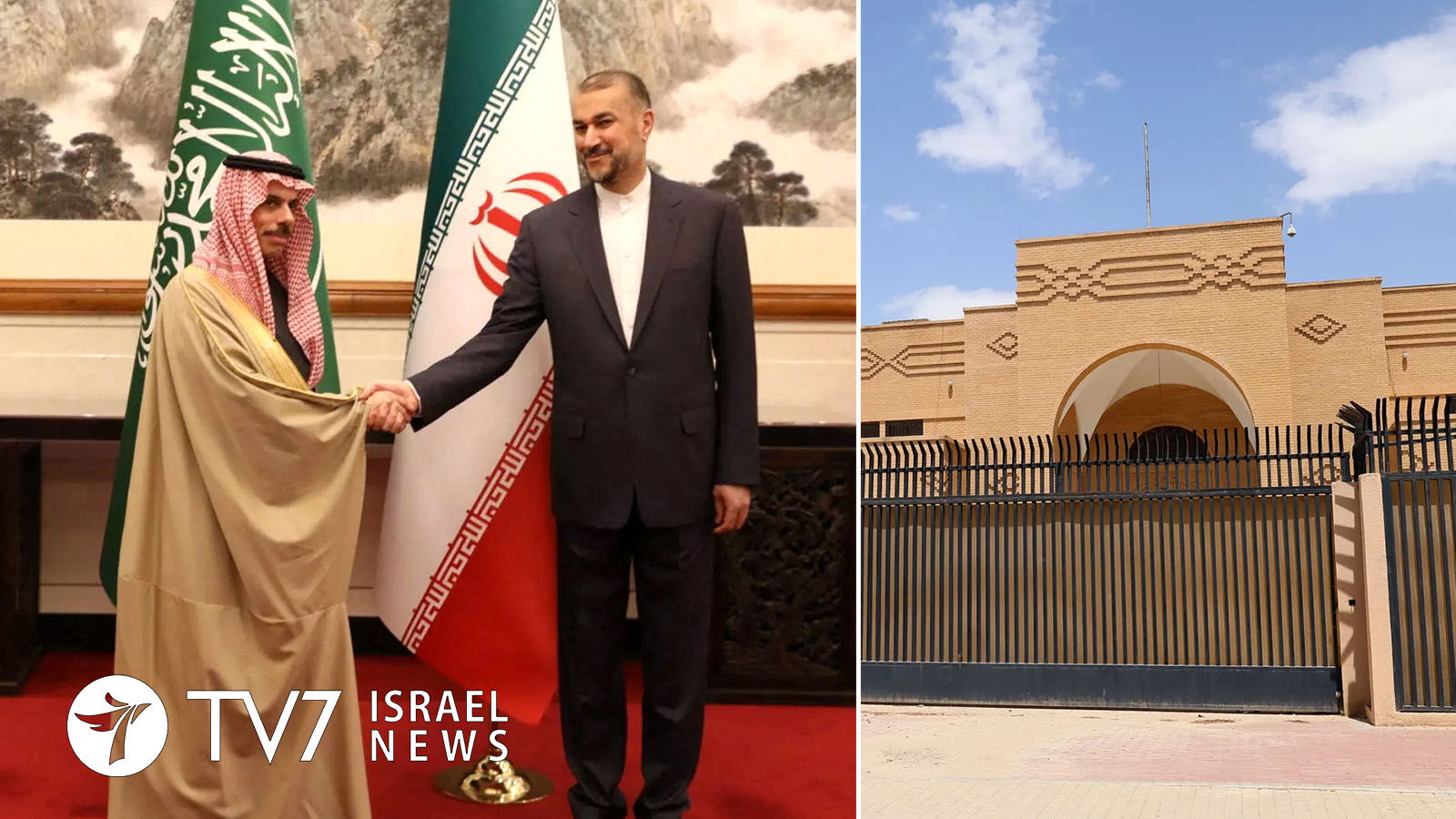The announcement follows a rapprochement between the regional rivals.
By Erin Viner
“During the last phone call between the foreign ministers of Iran and Saudi Arabia on Eid al-Fitr, we agreed to work in the next coming days on the reopening of the Iranian and Saudi embassies in Tehran and Riyadh,” said Iranian Foreign Minister Hossein Amirabdollahian. at a news conference in Lebanon. He went on to assert that the newly revived relationship “is in the interest of the entire region.”
Both closed their respective missions in the other’s country 7 years ago. They agreed to restore diplomatic relations in a deal brokered by China last month.
The deal, signed by Iran’s Supreme National Security Council Secretary Ali Shamkhani and Saudi Arabian National Security Advisor Musaed bin Mohammed Al-Aiban, will restore a 2001 bilateral security cooperation accord, as well as another earlier agreement concerning bilateral trade, economy and investment.
Distressingly for Israel, Shamkhani specifically stated that the “new chapter” of ties to Saudi Arabia is geared toward prevention of “meddling from extra-regional and Western states, and consistent meddling of the Zionist regime in the region.”
Saudi Arabia severed ties with the Islamic Republic in 2016 after the storming of its embassy in Tehran following execution of a Shi’ite Muslim religious leader in the Kingdom; which also holds its longtime foe for 2019 missile and drone attacks on its oil facilities and tankers in Gulf waters. Additionally, Iran’s Houthi proxy in Yemen has launched multiple cross-border missile and drone attacks against the Saudis, who are leading a coalition against them. The Houthis also extended their strikes to hit the United Arab Emirates in 2022.
Iran’s commitment to cease regional activities against Saudi interests also has far-reaching consequences for its proxies, the most powerful of which is the Lebanon-based Hezbollah terror organization, that refuses to believe that the Islamic Republic would end its support for its devotees regardless of its reported pledge.
Amirabdollahian made the comments at the end of a visit to Lebanon where he conducted a tour of the Arab Republic’s southern frontier with Israel, and also met with Lebanese officials including Hezbollah Secretary General Hassan Nasrallah.
Tehran’s top diplomat also stated that Iranian President Ebrahim Raisi would visit Syria in “the near future” without providing details. Talks with Syrian President Bashar al-Assad would be the first by an Iranian leader since eruption of the civil war in 2011. With military help and economic support from both Iran and Russia, Assad was able to turn the tide of the conflict and regain control of most of his war-torn nation.
Israeli National Security Advisor Tzachi Hanegbi reacted to the latest developments by casting dispersion on the Ayatollah regime’s diplomatic outreach, saying it comes in response to what he described as its failure to contend with IDF strikes on its assets in Syria and elsewhere.
“Iran is in distress,” he said while speaking to Israel’s Channel 12 TV.
